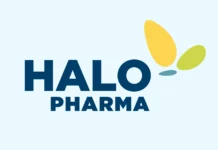French scientists have developed a novel hepatitis C vaccine that may offer the first effective way to prevent an infection that can cause chronic liver disease and cancer. There is currently no available vaccine for hepatitis C, though some companies are developing so-called “therapeutic vaccines,” which are designed to help patients who are already infected.
Â
The latest experimental shot has been tested successfully on mice and monkeys, but not humans, and has been shown to activate a broad response from immune system proteins called neutralizing antibodies. The antibodies fought off multiple variants of the hepatitis C virus in tests, suggesting the new vaccine should be effective even after the virus mutates, the researchers reported on Wednesday.
Neutralizing antibodies play a central role in most existing vaccines against other diseases, but harnessing them in hepatitis C has previously proved elusive. Work to date on therapeutic vaccines has focused on another immune system mechanism known as T-cells.
David Klatzmann, a member of the research team commented, For a preventative vaccine, neutralizing antibodies are absolutely essential, and for a therapeutic product they would also be a big advantage. About 130 million to 170 million people worldwide are chronically infected with hepatitis C virus, and more than 350,000 die from hepatitis C-related liver diseases each year, according to the World Health Organization.
Unlike hepatitis A or B, most people with hepatitis C develop chronic disease because their bodies are unable to get rid of the virus. The condition is spread by exposure to infected blood. Interferon and ribavirin-based therapy has been the mainstay of treatment, although recently Vertex and Merck have both launched promising new medicines that are tipped to become multibillion-dollar-a-year sellers.
Commercial interest in hepatitis C vaccines has been more muted. French biotech company Transgene and Austria’s Intercell are both testing therapeutic versions, but the main markets for a preventative shot would be in the developing world, which is less attractive for Big Pharma.
Commercial rights to the new vaccine are held by French start-up Epixis, which is being acquired by an undisclosed U.S. biotech company. Epixis CEO Charlotte Dalba said she hoped that initial human trials of the vaccine could start in 2012, provided funding was in place.
The experimental vaccine uses virus-like particles, which resemble viruses but are non-infectious because they don’t contain any viral genetic material. Details of its development were published in the journal Science Translational Medicine.
Â
Â



















